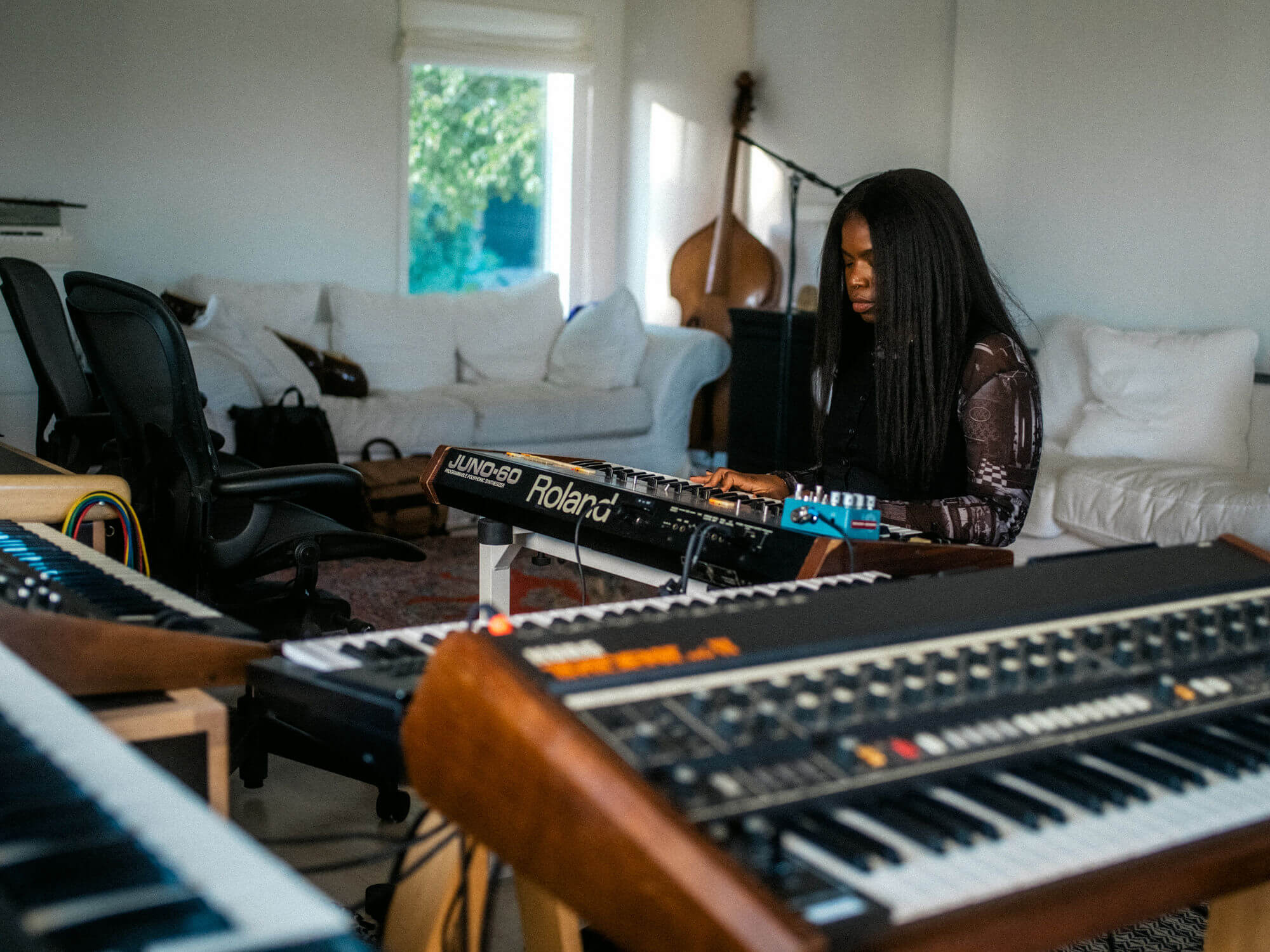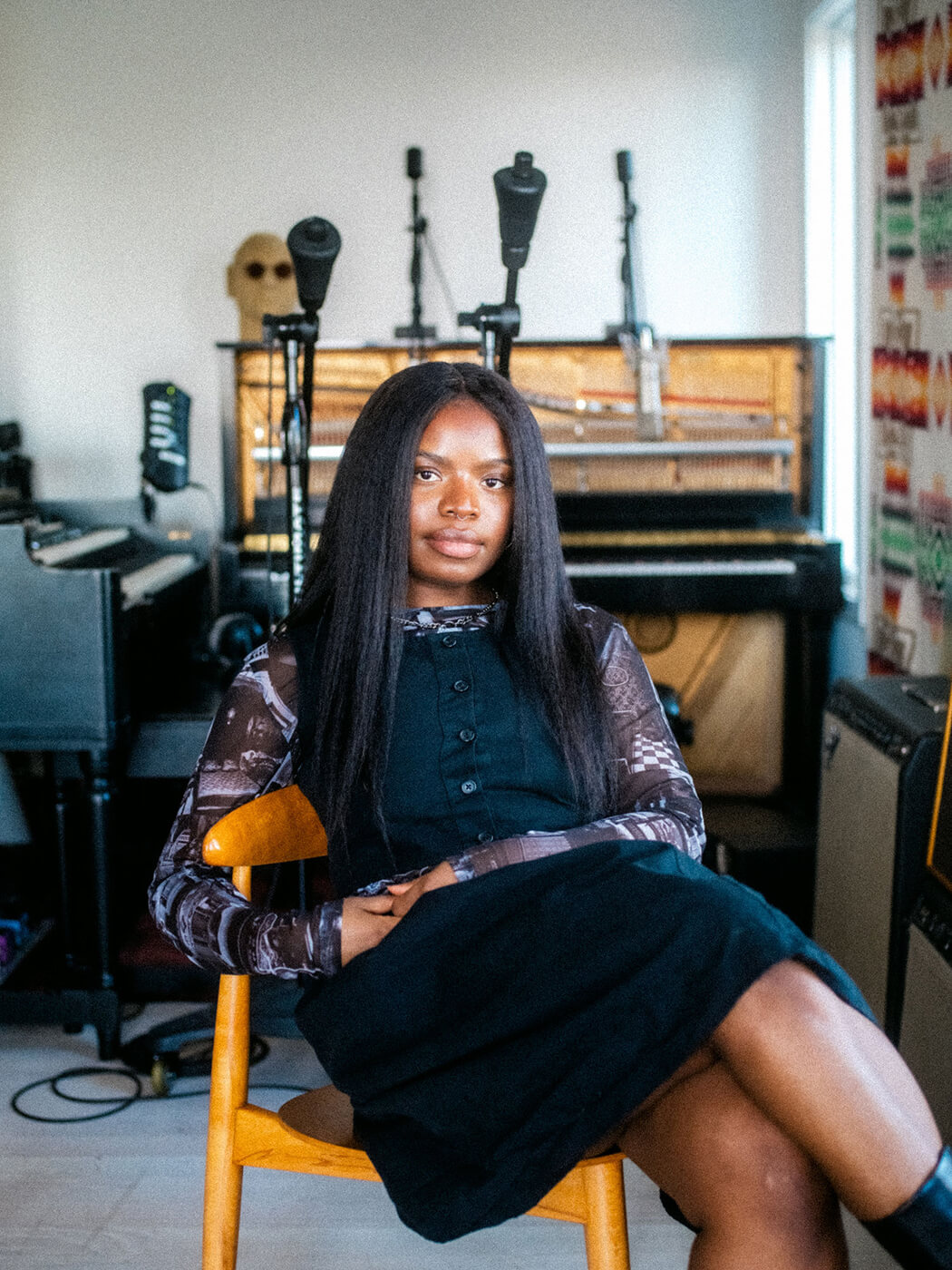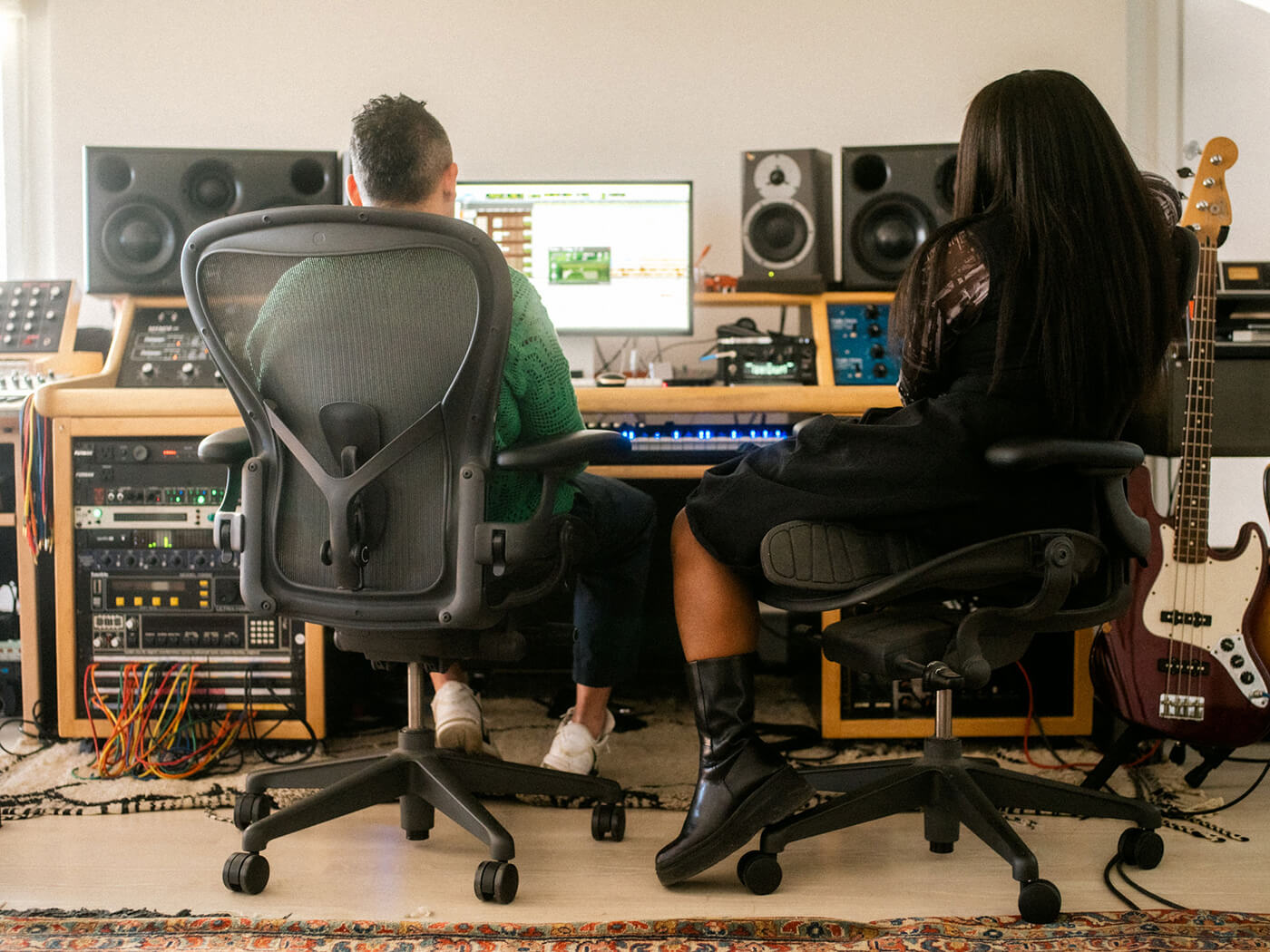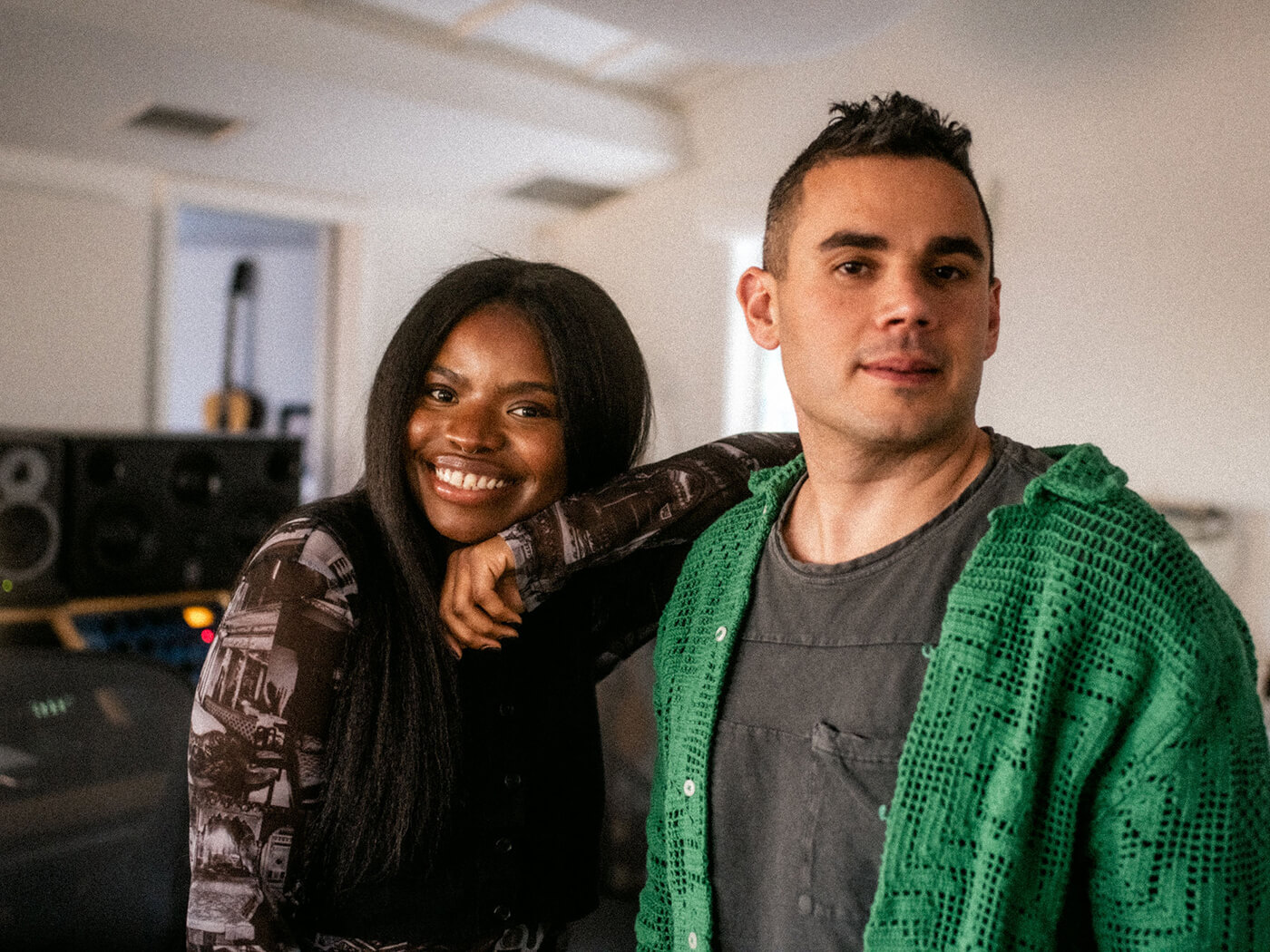A daring move to Germany gave Vagabon “purity” to write her first album in four years
The multi-instrumentalist tells us what moving to a foreign country did for her music, the plugins she uses and how her production and songwriting are linked.

Vagabon in Rostam’s studio. Image: Max Knight
Vagabon, AKA Lætitia Tamko, is a Cameroonian-American multi-instrumentalist and producer who has recently transitioned from making dreamy guitar-led music to dancefloor-influenced dance-tinged pop ranging from disco to drum ‘n’ bass. Her latest album, Sorry I Haven’t Called, produced by Tamko, with Teo Halm and former Vampire Weekend member Rostam Batmanglij, was released in September and followed a moment of personal grief for Vagabon. She made the album after moving from New York to the remote countryside in Germany in an attempt to overcome the grief. Influenced by German dance music while there, this album demonstrates her evolution from one genre to another, reflecting an artist embracing a new, unique vision and reclaiming her joy after a period of loss.
In this interview, Vagabon discusses her music production and songwriting process, emphasising the symbiotic relationship between the two. She elaborates on the impact of her move to the German countryside on her creative approach and shares insights on her preferred music production plugins, which include Soundtoys’ AlterBoy and the Valhalla Shimmer. All of these plugins come together to form a new and exciting sound for Vagabon.
Hey, Vagabon! How much of your time is spent producing compared to songwriting?
My songwriting and production work in tandem – I write with production in mind and in practice. I use production as a tool for my songwriting, such as formant shifting a vocal before I’ve written the words or using varispeed to slow some chords, improvise melodies, speed it back up, and discover new melodies to use that I couldn’t have thought of without the aid of varispeed.
Where is your music made?
Eighty per cent of my process needs to take place in my home studio. To make Sorry I Haven’t Called, I moved to the countryside of North Germany and set up a home studio in a beautiful wooden house with 1970s carpets and floor-to-ceiling windows. I don’t know a word of German, but that was the right atmosphere for me: quiet, private, dream-like surroundings, and almost… boredom. More generously, boredom can mean there’s no room for distraction.

How did the move affect your approach to making music?
The move to the countryside added purity to the music I was making. It served to suspend the pressure of time and making records quickly. It’s been four years since my last album, and I wanted to return to this work without the baggage of that hiatus, and Germany afforded me that.
What’s your latest plugin purchase?
Soundtoys’ Little AlterBoy. It’s a classic, but I’ve only just bought my copy. I used it on Passing Me By on the record. I really enjoy working with formant shifters and voice alterations, and AlterBoy is the best for it. It’s absolutely worth the money and very reliable. Playing with voice alteration helps me come up with new and fresh melodies I wouldn’t have otherwise considered. It’s especially useful when I’m experiencing writer’s block.
What’s the best value plugin you own?
Sketch Cassette, for sure, at only $30; I find myself using it often. I really like how expansive the tones are, and at such an accessible price. From bedroom studios to huge studios, Sketch Cassette can sit with the rest of them.

What’s the most expensive plugin you’ve ever bought?
Antares Autotune. I use it as a songwriting tool; when I’m writing a melody, I like to use Autotune to feel free to explore worlds that I may otherwise feel unable to explore with my voice. After coming up with something, I take the Autotune off and sing it again without. It just helps me with roadblocks in the process.
What’s a DAW stock plugin you use all the time?
[Laughs], Logic Pro’s Ultrabeat. I learned to program drums with Ultrabeat, and it’s not even that I prefer it; it’s just so familiar, and I can work quickly with it, and that’s good for me, at least for now.
What plugins go on your master bus without fail?
SSL4000E, Rule Tec EQ1A, keeping it pretty simple.

What plugin would your album be incomplete without?
FIX Doubler.
Do you have any secret sauce plugins?
Valhalla Shimmer.
What about a guilty pleasure plugin?
It’s not really a guilty pleasure, but Nicky Romero’s Kickstart for sidechain compression.
What do you use without fully understanding?
Sugar Bytes EFFECTRIX.
Check out Vagabon’s music via Bandcamp.